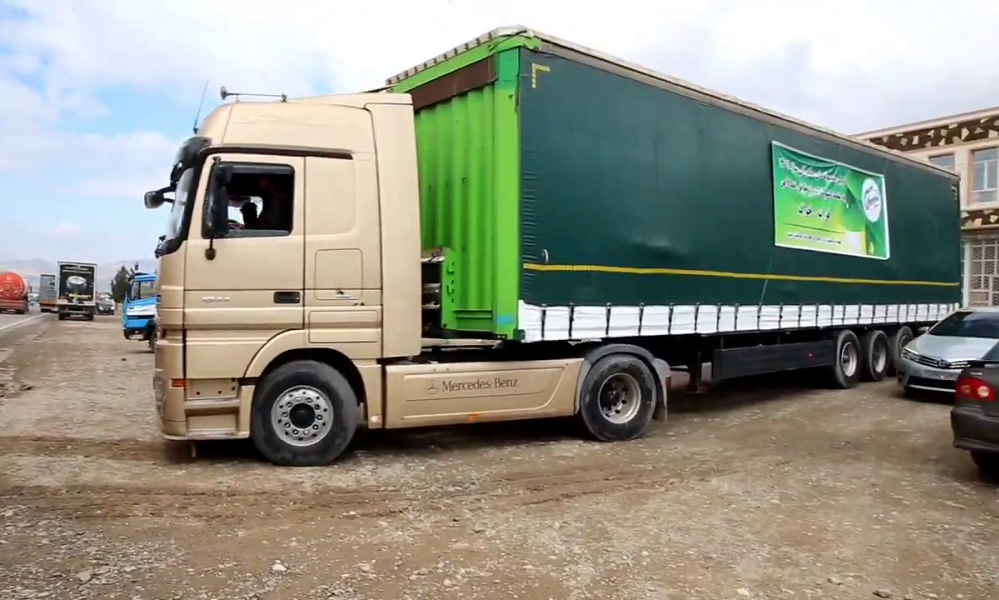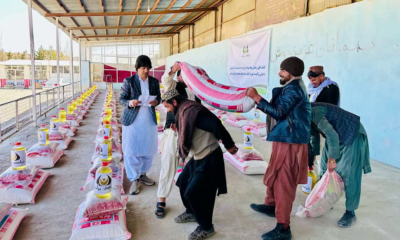Business
ADB approves $110 million grant to boost power supply to Afghanistan

The Asian Development Bank (ADB) on Wednesday approved a $110 million grant to boost power supply and strengthen Afghanistan’s energy sector by improving its sustainability and promoting cross-border trade in energy.
“The project will help address Afghanistan’s chronic power shortage by immediately doubling the volume of power imports and ensuring long-term cost-competitive electricity supply,” read a statement issued by ADB.
Once complete, the project will provide improved access to customers and facilitate 500,000 new connections to households, commercial entities, and industrial customers.
“Demand for electricity is growing rapidly in Afghanistan and is essential for the country’s economic growth,” said ADB Energy Specialist Nana Gurgenidze.
“The project will help provide reliable and affordable electricity to households and businesses by strengthening the grid and increasing power import capacity by 900 megawatts, with year-round firm energy imports of 3,000 gigawatt-hours.”
Afghanistan relies on energy imports from neighboring countries to meet its domestic demand and despite significant progress since 2002, only about 34 percent of the population has access to grid-connected electricity.
According to the ADB, the project will finance the construction of 201km of a 500-kilovolt overhead transmission line from the Surkhan substation in Uzbekistan to the Khwaja-Alwan substation in Afghanistan – a key interconnection node to receive power from Tajikistan, Turkmenistan, and Uzbekistan.
It will also fund the expansion of a line bay, including associated equipment, at the Khwaja-Alwan substation and the project will allow Uzbek power into the Afghan grid under a 10-year power purchase and sales agreement signed in August 2020 by the Afghanistan and Uzbekistan governments.
In addition, staff, including female engineers at the national power utility Da Afghanistan Breshna Sherkat (DABS), will be trained to manage cross-border power transfer and parallel operations, including emergency operation systems with CAPS, read the statement.
Business
36 mining contracts inked over the past year: Mines ministry

The Ministry of Mines and Petroleum says it has signed 36 large and small mining contracts, with a total value of $1.3 billion over the past year.
Officials from the ministry stated that these contracts include 10 large mines, 25 small mines, as well as projects related to cement, salt, marble, and a major gas extraction contract with Uzbekistan, all signed with both domestic and foreign companies.
Meanwhile, economic experts have emphasized the importance of increasing investments in the mining sector for the country’s economic growth. They have stressed that priority in mining contracts should be given to domestic companies.
“It is better to prioritize domestic investors over foreign ones,” said Kamaluddin Kakar, an economic expert.
In the meantime, members of the private sector also stated that if both foreign companies and Afghan investors can partner in the mining sector, this will not only foster investment development in the country but also bring positive changes in capacity building within the mining extraction sector.
Business
Afghanistan ships first consignment to Europe via Khaf-Herat railway

The press office of the Herat governor has announced the export of Afghanistan’s first shipment via the Khaf-Herat railway to Europe.
According to a statement from the office, the shipment includes 200 tons of dried fruits worth $1.2 million, which were exported to Turkey and Europe through the Khaf-Herat railway in the presence of Islam Jar, the governor of this province, and the Iranian Consul General.
The exported dried fruits in this shipment include pistachios, raisins, almonds, and pine nuts.
The statement added that over the past three months, more than 35,000 tons of goods have been transferred via the Khaf-Herat railway.
Business
Russia’s LPG exports to Afghanistan boom as Europe shuns it
The exports to Afghanistan, the main consumer of Russia’s LPG in the region, rose by 52% for the period to 71,000 tons.

Russia’s exports of liquefied petroleum gas (LPG) to Afghanistan and ex-Soviet states in Central Asia have jumped following introduction of European Union sanctions against Moscow at the end of 2024, industry sources said on Wednesday, Reuters reported.
The European Union’s sanctions against Russia’s LPG over the war in Ukraine took effect on December 20. The restrictions were proposed last year by Poland, one of Russia’s largest LPG importers.
LPG, or propane and butane, is mainly used as fuel for cars, heating and to produce other petrochemicals.
According to the industry sources, railway supplies of LPG from Russia’s plants, including the Kazrosgas joint venture with Kazakhstan, jumped to the region by 80% year on year in January – February to 140,000 metric tons, read the report.
The exports to Afghanistan, the main consumer of Russia’s LPG in the region, rose by 52% for the period to 71,000 tons.
Traders expect great scope for more supplies to Afghanistan, where annual demand for LPG is seen at around 700,000 tons per year.
-

 International Sports4 days ago
International Sports4 days agoIPL 2025: Last over drama; Ashutosh Sharma clinches win for Delhi Capitals
-

 Regional5 days ago
Regional5 days agoEgypt makes new proposal to restore Gaza truce as Israeli strikes kill 65
-

 Sport4 days ago
Sport4 days agoAfghanistan eliminated from Asian Beach Soccer Championship
-

 Latest News4 days ago
Latest News4 days agoNorwegian Refugee Council cuts back on essential humanitarian services in Afghanistan
-

 Latest News4 days ago
Latest News4 days agoUN warns over 4 million Afghan girls will be deprived of education by 2030 if ban continues
-

 World4 days ago
World4 days agoSecretive Chinese network tries to lure fired US federal workers, research shows
-

 Latest News4 days ago
Latest News4 days agoDozens of needy families in Ghazni get much needed food aid from Bayat Foundation
-

 Sport4 days ago
Sport4 days agoAFC Asian Cup 2027 Qualifiers: Myanmar defeat Afghanistan 2-1
























